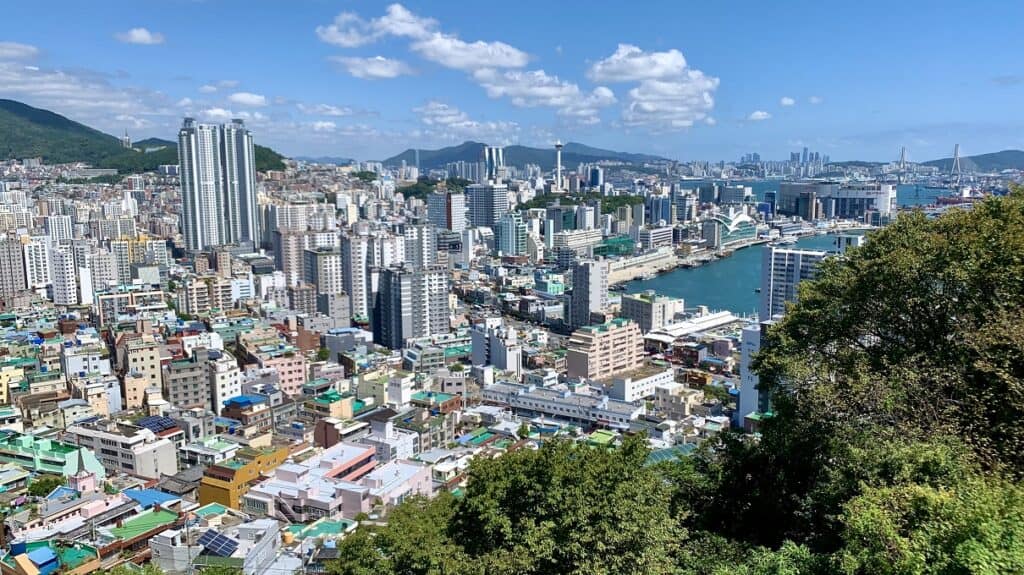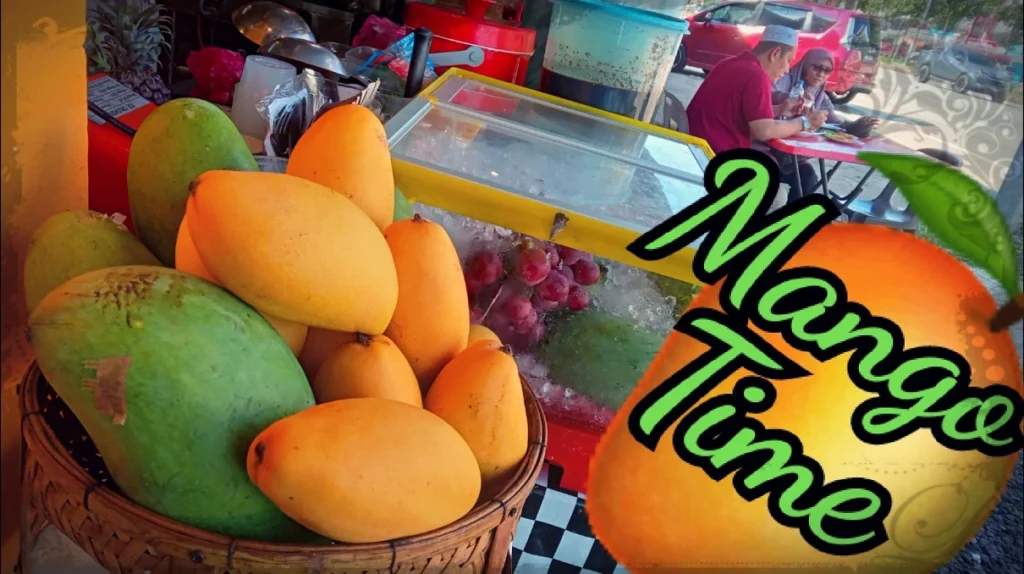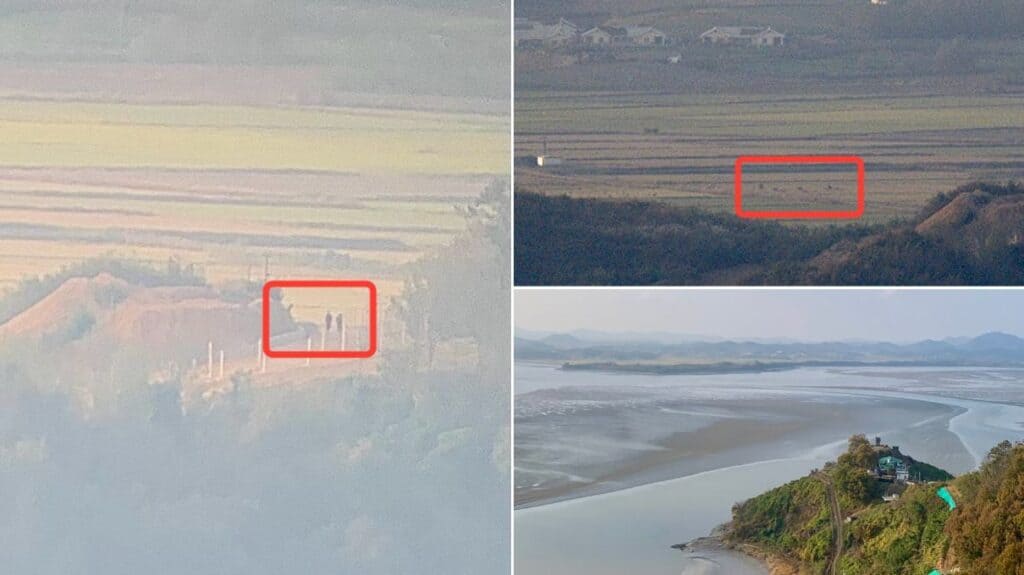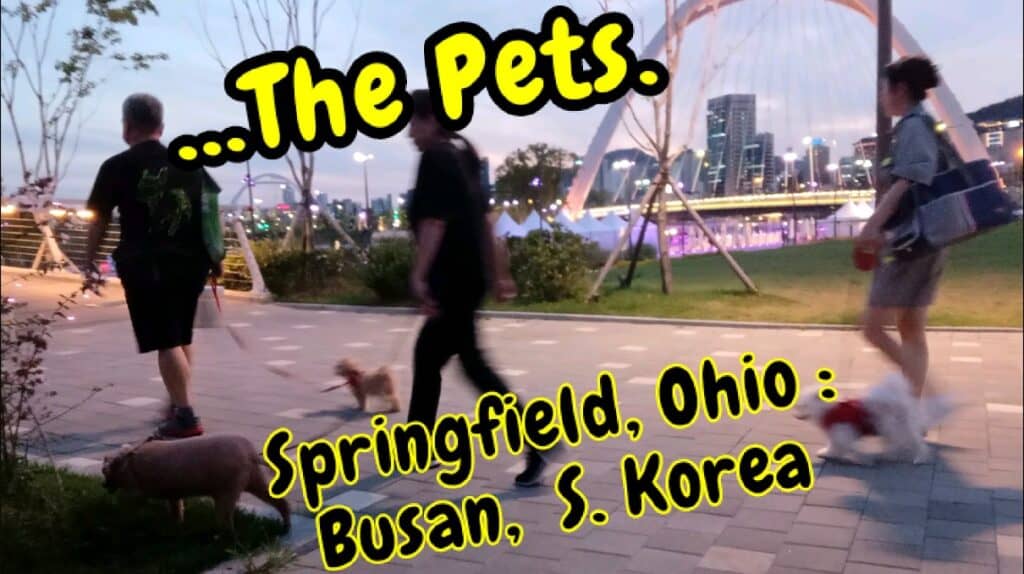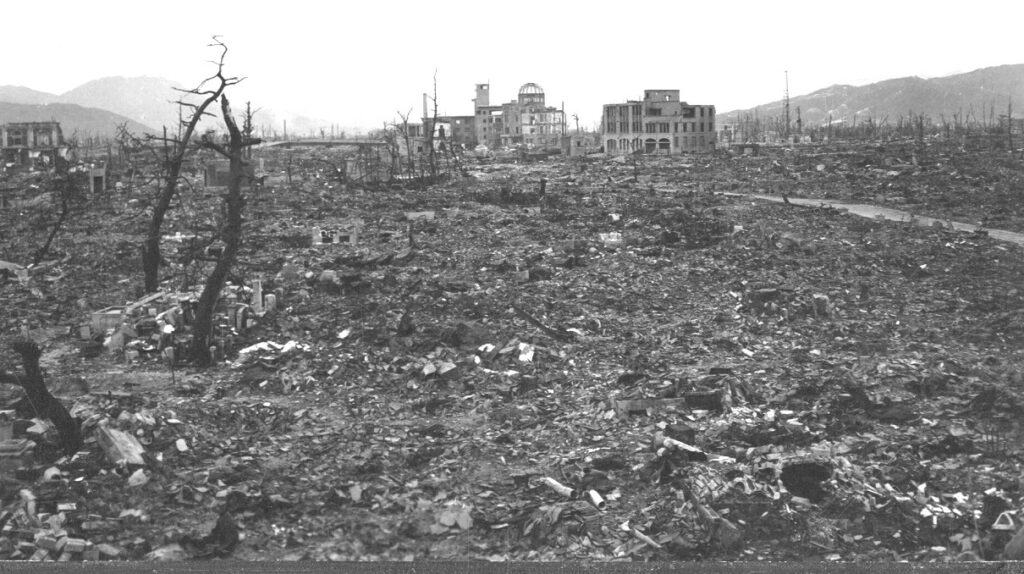Busan is a city in the Republic of Korea that has it all — beaches, ocean walkways, mountains, well-designed overlooks, parks, historic sites, cultural events, cliff-side trams and coastal cable cars, clean streets, free Wi-Fi and welcoming people. This place is like a playground for tourists in warm seasons.
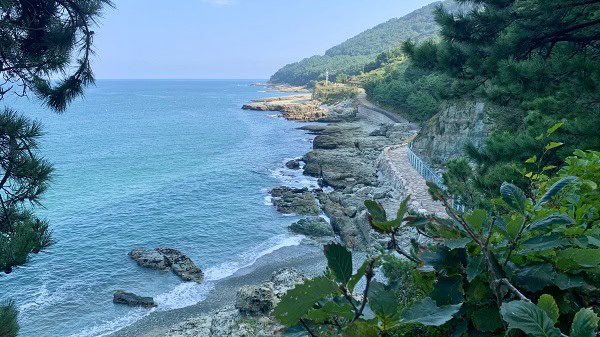
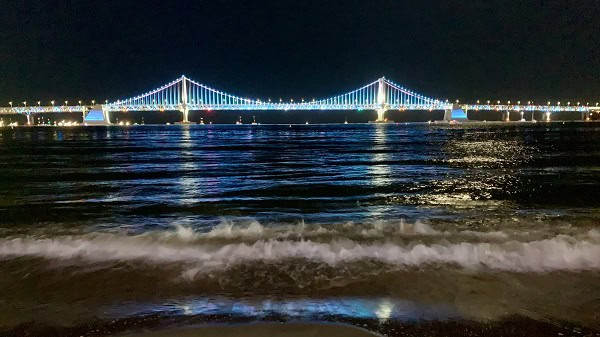
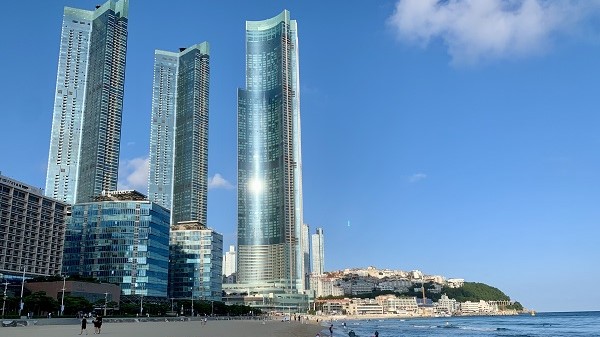
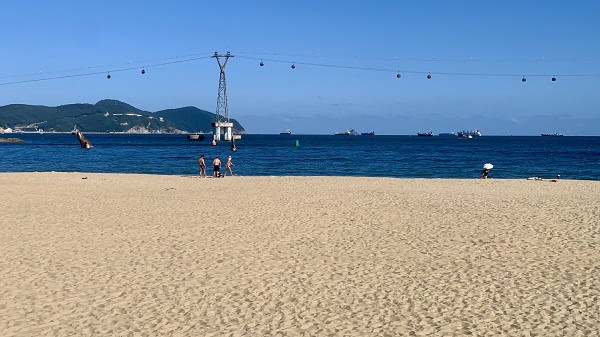
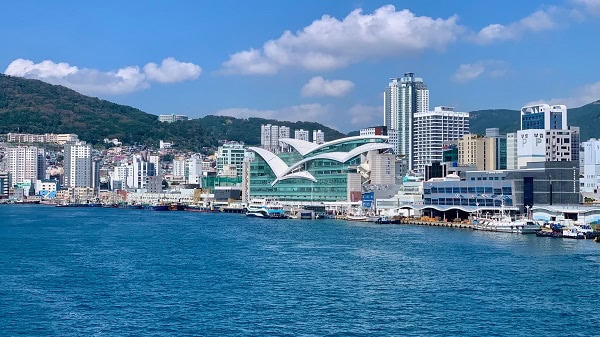
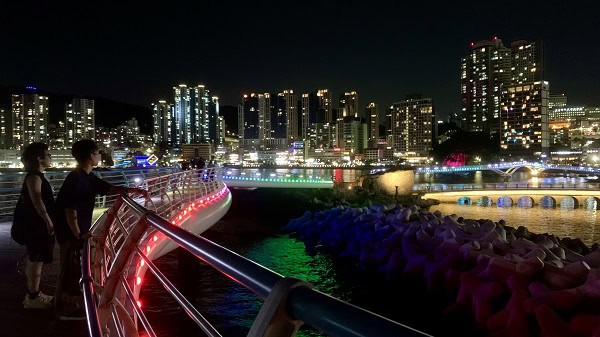
It has even more special features: hot springs, free drone shows, outdoor fitness machines all over and free weights in larger parks; plants at some subway stops; book exchanges (though almost all books are in Korean).
For ocean-centric people, there are boats of all types, paddle boards, surfing, diving. For hikers there are many nearby well-kept trails, some inclines covered with rope rugs used by the many hikers I’ve seen who appear to be over 70.
Trails and some public places like the new port park have rest areas with reclining chairs. And since parts of Busan are steep against mountains, the many stairways are well-kept with railings and no-slip features.
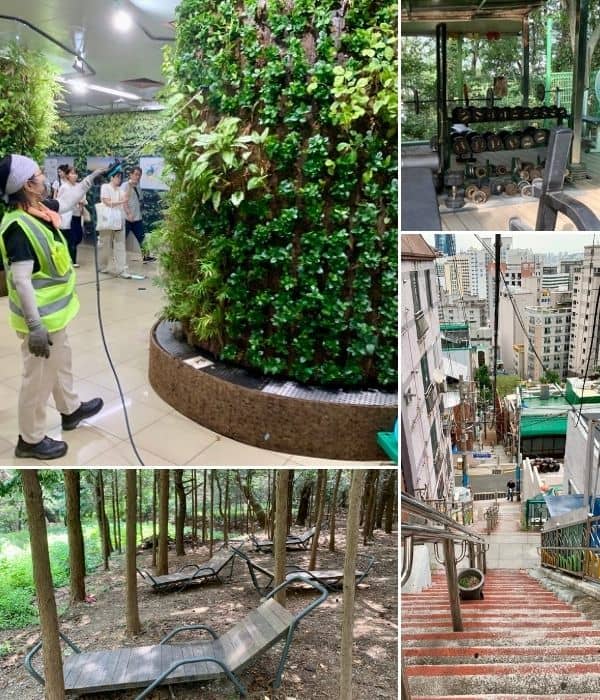
These great attributes and thoughtful little touches surely mean Busan has major growth potential to become — what? Busan already seems to have it all. And yet: it semantically sells itself super short.
‘Busan is everything’
City leaders gathered the top dozen marketing minds in the country to come up with a new slogan to attract tourists and investment. The new slogan is plainly, boringly: ‘Busan is good’. A previous slogan ‘Nice Busan’ is hardly any better. Another previous slogan was somewhat better: Dynamic Busan. Why’d they get rid of that?!
Busan is good? That’s it? As a tourist or investor, that doesn’t make me want to go. I want the best, the greatest. I’m a capitalist with money to spend — I want it all. I wish that slogan was ‘Busan is everything‘. To me, that captures the diversity and intensity of all it has to offer. But I’m no marketing expert. I’m just a casual traveler… with some common sense.
Slogans & semantics
The marketing committee put the slogan to a vote. Busan is, after all, in a democracy. When you consider the other choices, it’s no wonder ‘Busan is good’ won. The other choices were ‘Bridge for All, Busan’ and ‘True Place, Busan’. (Face palm.)
The name Busan itself is a quandary. Until 2000, it was written as Pusan. During Japanese occupation it was Fuzan. Busan is the Revised Romanization of Korean.
I see signs for ‘Pusan’ and ‘Nice Busan’ all over the city. As a native English speaker, the variety of spellings and lame slogans suggest timidity about identity.
Nearly all young people are taught English in school, though they are shy to speak it. In fact, the mayor wants to build Busan up into a global hub similar to Singapore and Hong Kong– cities with English as a main language.
Singapore’s slogan is “Passion Made Possible”. We visited that city-state in 2018, and I can see how that works for what they offer. Hong Kong’s tourism slogan is “Hello Hong Kong”. We have not been there, but that phrase invites my acquaintance more than ‘Hong Kong is good’.
Busan’s mayor wants his city to be the “first English-friendly city in Korea with an innovative English education system” in order to create “Asia’s Silicon Valley.” And he wants to boost its ranking from the 13th ‘Happiest City in Asia’ into the top 10. After all, “Happiness is the purpose of life,” he said in his inaugural address. Indeed.
Happiness vs. capitalism vs. population decline
South Korea is a G20 nation, the fourteenth largest economy in the world. It set a record for rapid growth — it was a war-torn disaster just a couple of generations ago. Now as a democratic nation that embraces capitalism, it has an insatiable need for continued growth and the resultant wealth inequality that underlines capitalism. Greed exists around every cut corner on the way to profit.
So, are people happy in Busan? As a casual traveler looking in, yes, it seems so. Young people might not be marrying and having children due to income shortfall in inflationary times, but they seem to enjoy life well enough as it is. Many have disposable income to spend in name brand stores, drive cars, take leisure rides, and treat their dogs like human babies with dog carriages, fancy fur cuts and sunglasses.
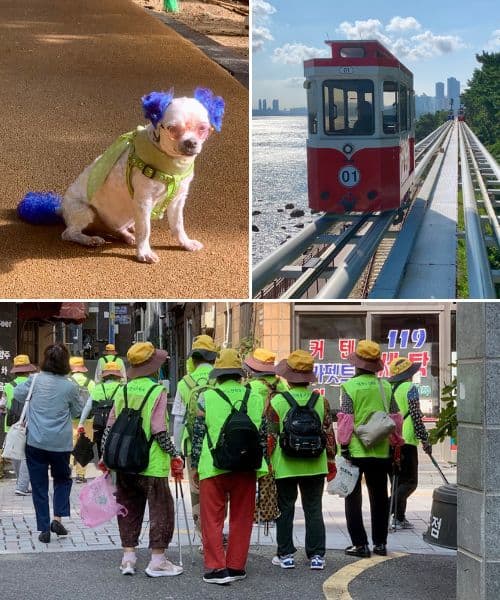
Older people — of which there are many — volunteer in the mornings to clean up their neighborhoods. I see teams of them on streets and in parks. They smile and chat with each other as they work.
There seems to be a decent safety net for people in crisis. I have seen a few homeless people, but hardly any for a city with a population of 3.5 million – roughly the same as Los Angeles.
On the surface, they all seem OK, if not happy.
But without that constant growth, capitalism falters. The South Korean population is in decline. Young people overwhelming cite financial security as the main reason they don’t have children. Disposable income for them is enough for a latte at one of the thousands of coffee shops in Busan, but not enough for an endless stream of baby bottles.
Busan held a matchmaking event to spark romance. Money is king in a capitalist society, right? So Busan offered 1 million won ($720) to people who “initiate a romantic involvement through the event.”
If capitalism blooms, population booms.
Busan is everything… almost
Busan is not the perfect place where we personally would want to retire and settle in. In fact, as budget slow travelers, we can’t stay here more than a month or two.
There are two big things we don’t like: higher prices than the developing nations we’ve gotten used to; a doctors’ strike as of this writing that has led to deaths when patients have to be turned away from emergency rooms.
There is no perfect place on Earth. But the people who live here do want to make it the best it can be.
It would appear Busan’s mayor and marketing team decided that “Nice Busan” wasn’t good enough to lure new business investments and well-to-do tourists to propel substantial growth.
But going from “Nice Busan” to “Busan is good” hardly blares out that Busan really does have everything – despite a few issues.
In fact, having spent two weeks wandering around the city and the mountains behind it, strolling the beaches and observing the locals, I say: Busan is mighty damn good, fabulous, excellent, first-rate, visionary, extraordinary… everything.
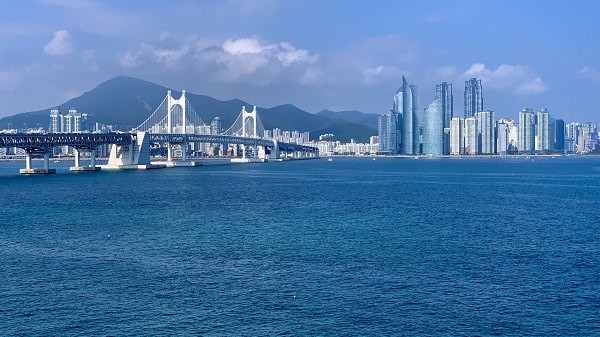
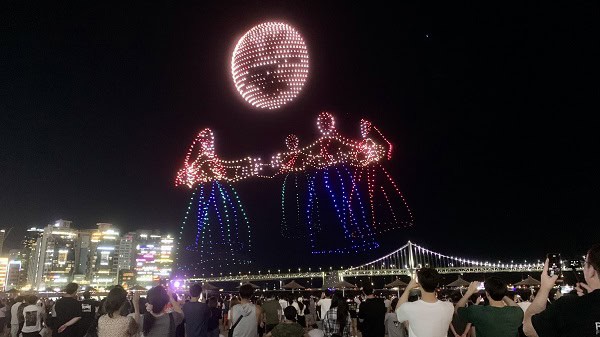
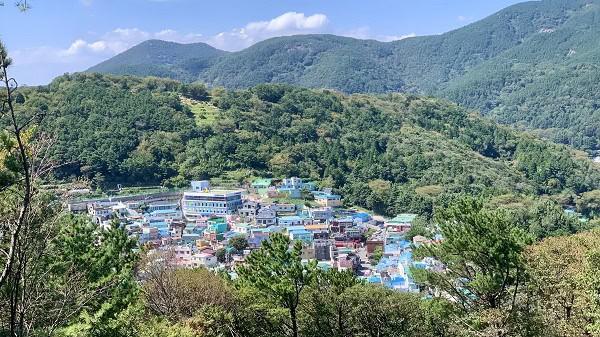
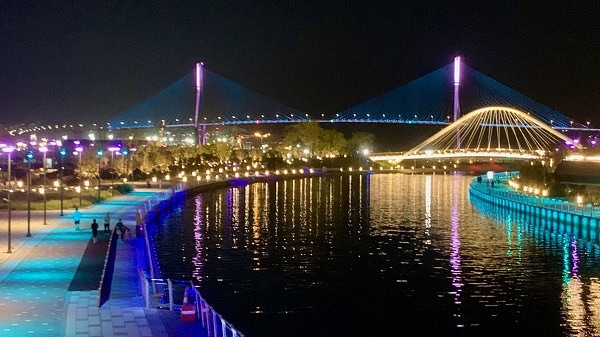
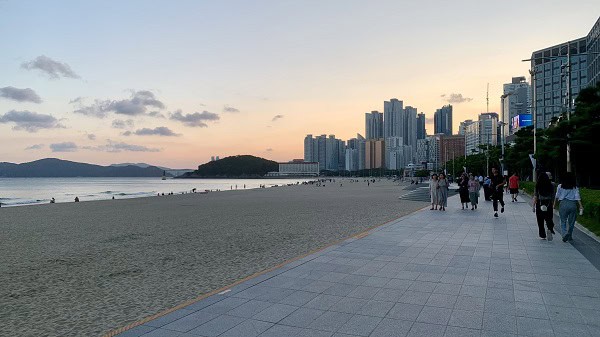
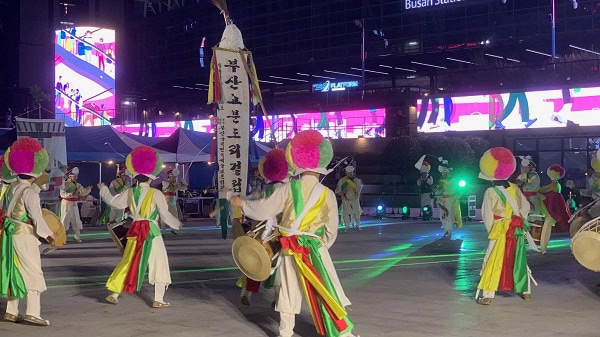
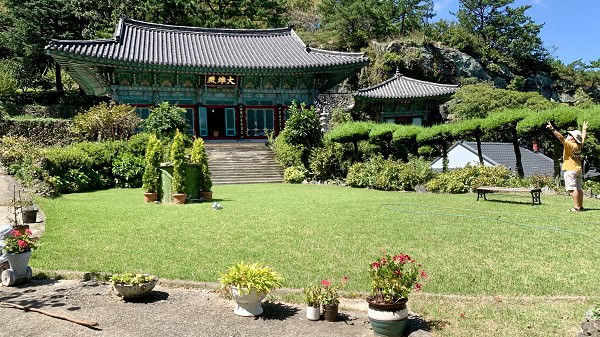
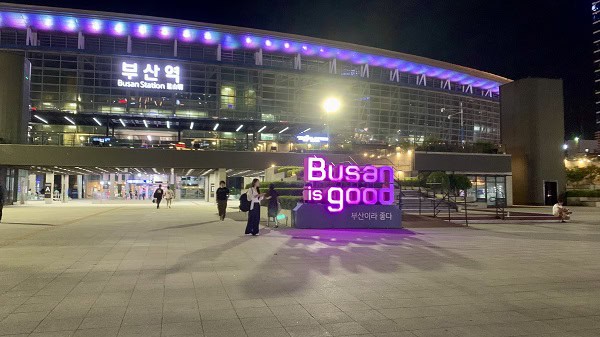
Thanks for reading, “Busan is everything… almost.”
About Ellen
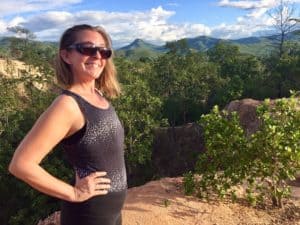
Ellen and spouse Tedly started a budget slow travel lifestyle in 2015. She was diagnosed with early-stage breast cancer while traveling in Europe in 2018 through an annual mammogram. She had a double mastectomy in Croatia, recovered from surgery, and kept traveling.
As a recovered alcoholic, Ellen seeks out spiritual growth opportunities in a variety of ways during her travel life, including service work, volunteering, and the occasional silent meditation retreat.
Other travel commentaries
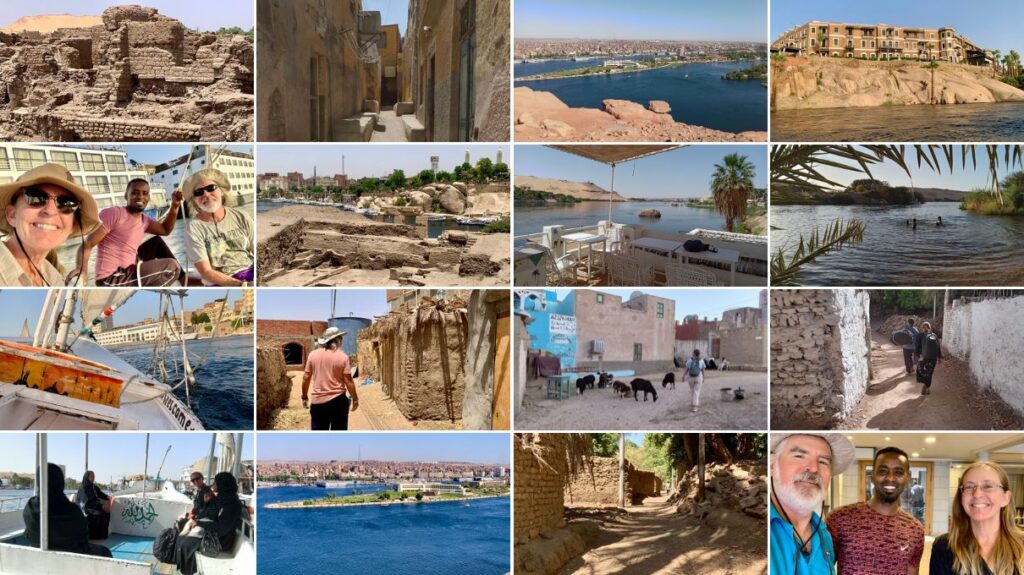
Elephantine Island has 7,000 years of history, a million reasons to visit
Ellen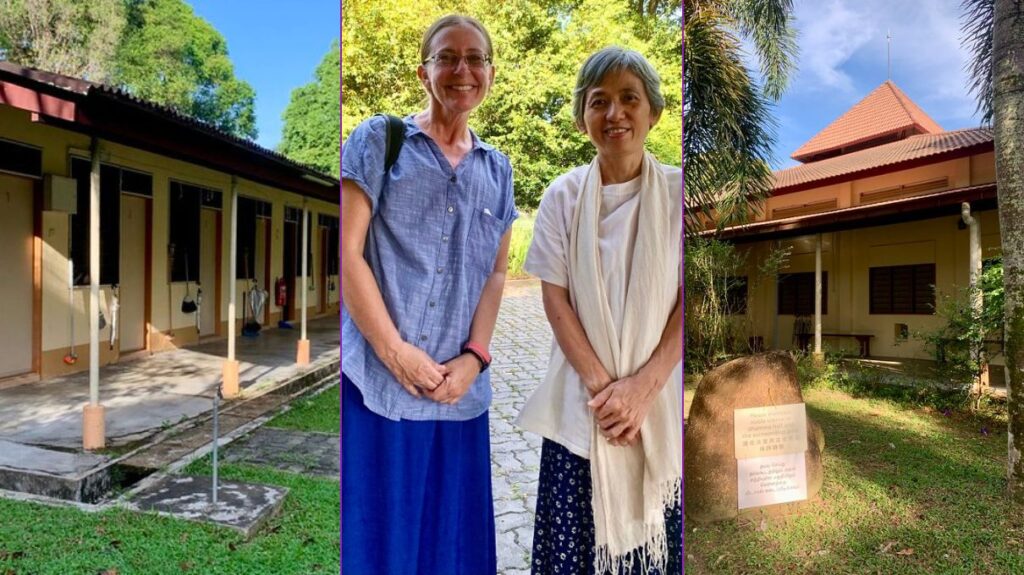
10-day silent meditation retreat at Dhamma Malaya
Ellen
Boycotts of American brands & uncomfortable questions for us travelers
Ellen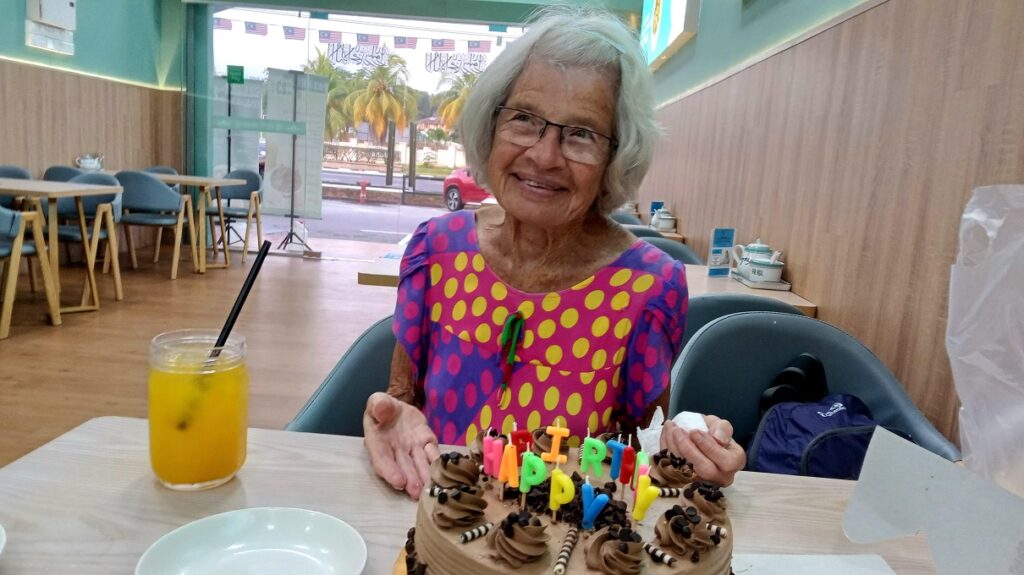
“Happy Birthday, Mom!”
Theo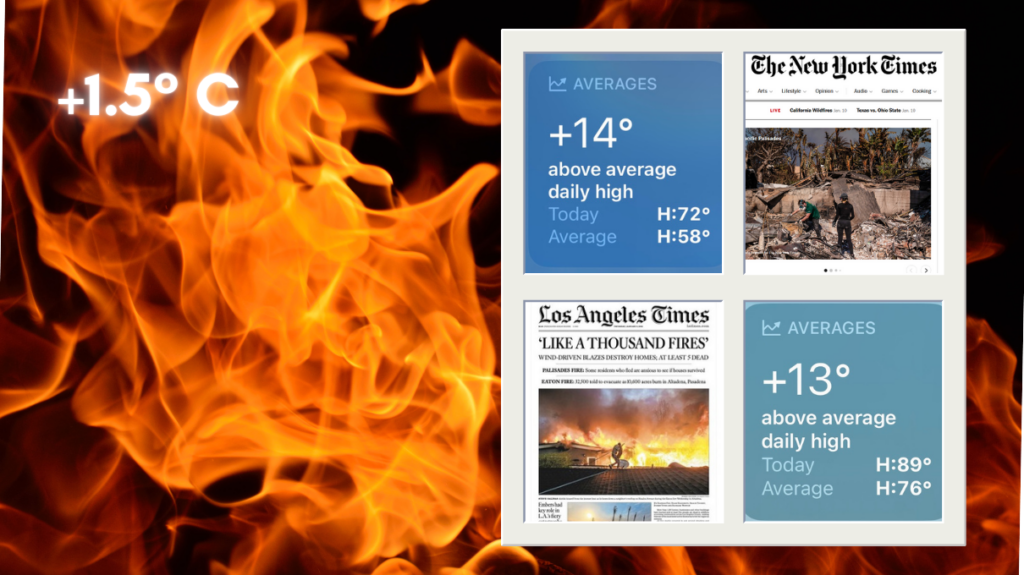
Commentary: Yellow Journalism & Global North denial
Ellen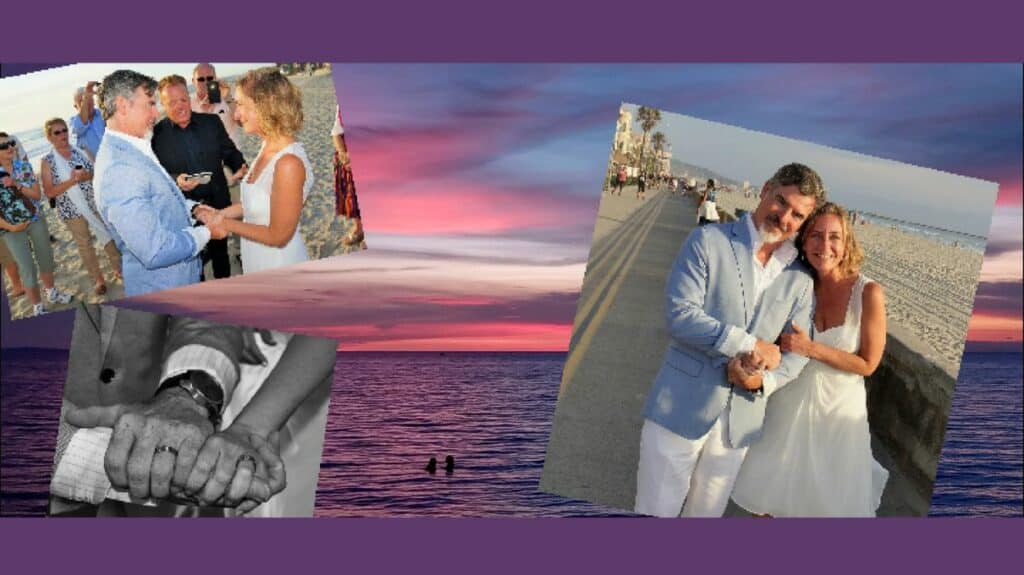
Unusual anniversary apart for Earth Vagabonds
Theo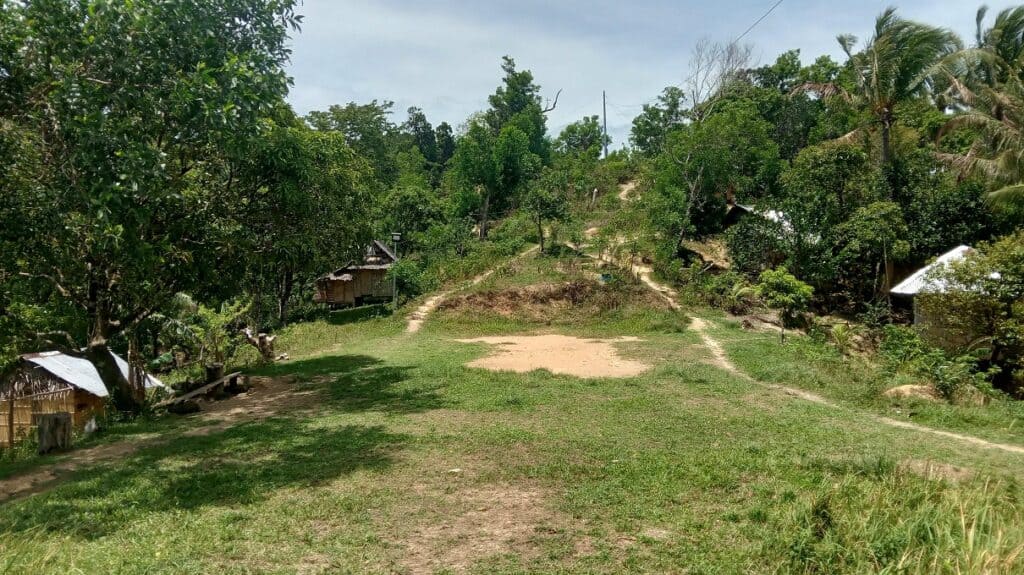
Return to Kurong – the Ati mountaintop village we helped in pandemic days
Theo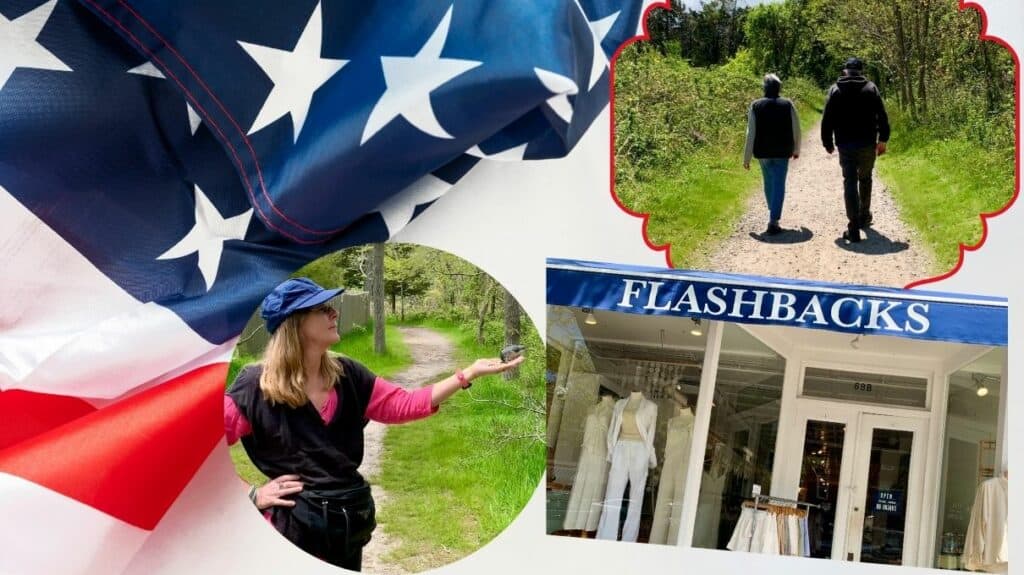
7 surprises on a trip home, plus a few flashbacks
Ellen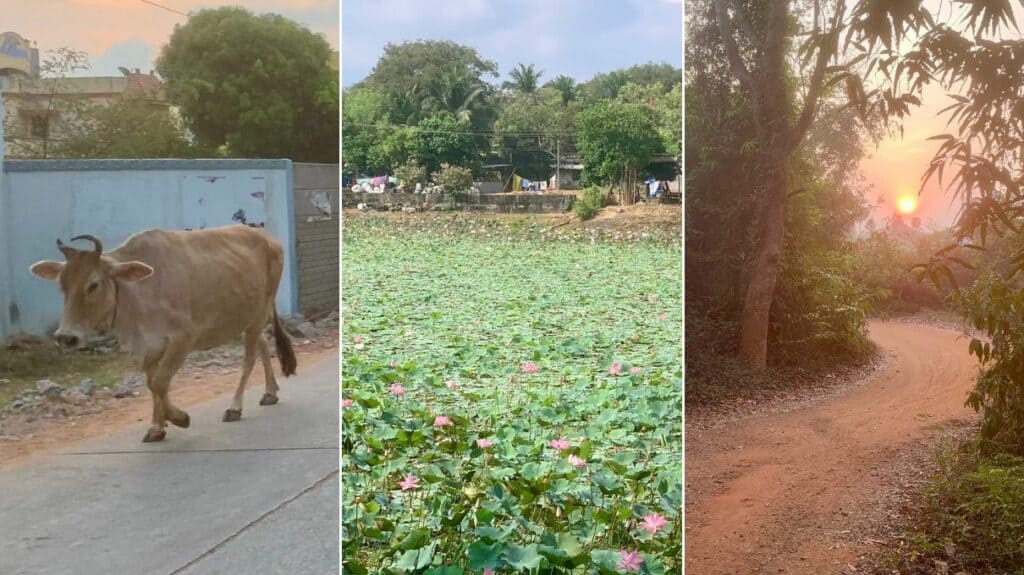
What it looks like outside Auroville, the experimental community for ‘Human Unity’
Ellen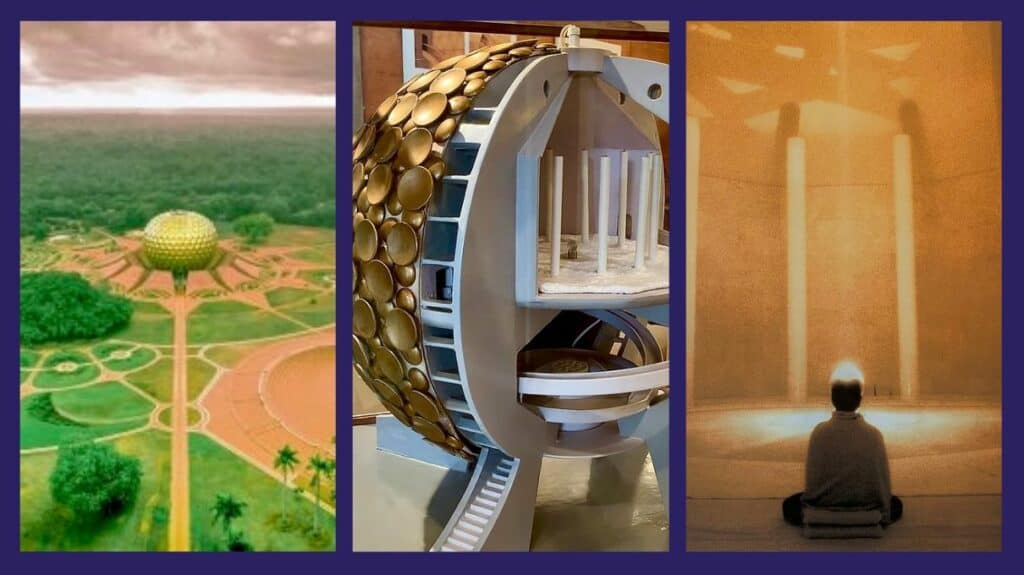
What it’s like to ‘concentrate’ inside the Matrimandir in Auroville
Ellen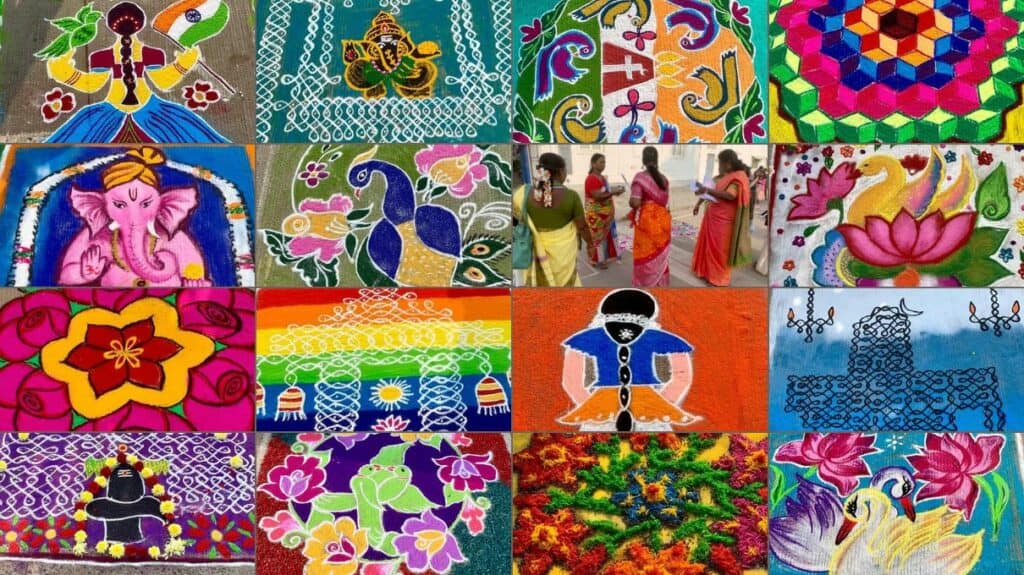
Kolam and impermanence, nationalism and tolerance on display
EllenClimate catastrophe note
Budget slow travel means we don’t own a car and we fly as little as possible, so we emit less carbon than casual tourists.
Sadly, we see the negative impacts of the climate crisis all over the world.
For a scientific look at the current crisis and fast-approaching catastrophe, we highly recommend The Climate Book. Civilization is running out of time to evolve.
And the climate emergency countdown clock we’ve had on our site for years seems to have run out of time now that we passed the 1.5°C threshold in 2024.

